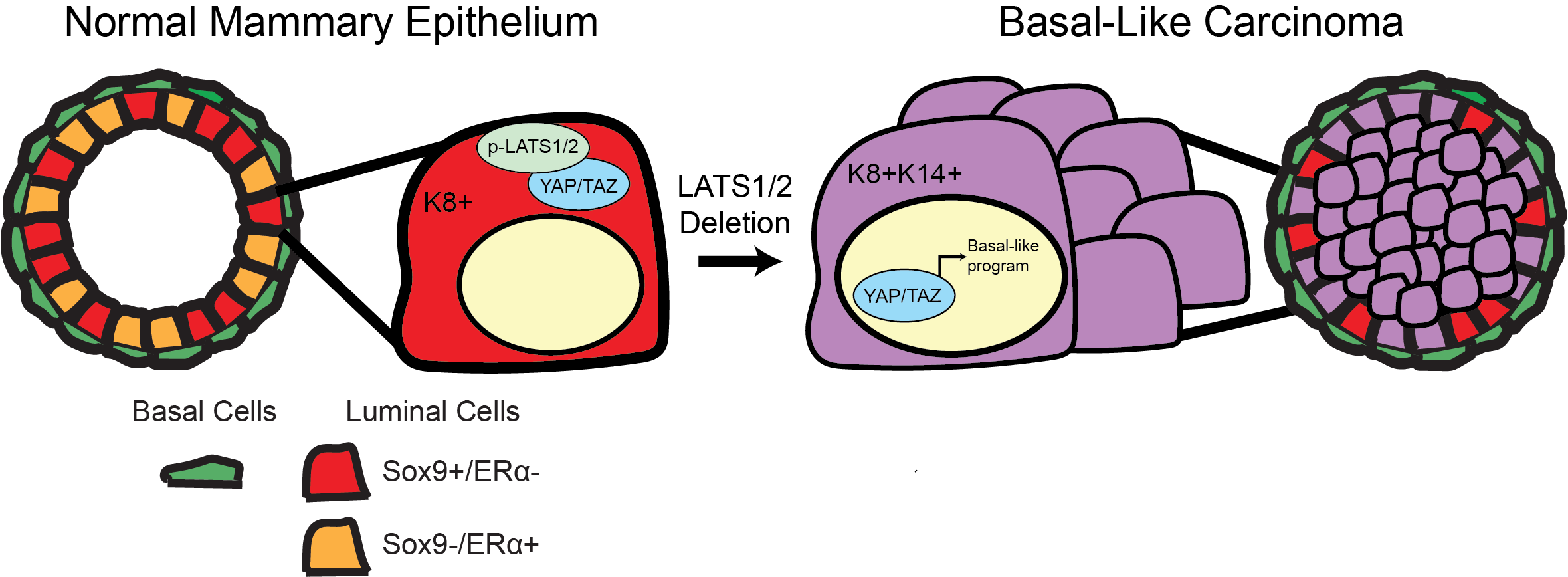A study from the Varelas Lab was recently published in Nature Communications describing the functions of the Hippo pathway effector kinases, LATS1 and LATS2 (LATS1/2), in the mammary epithelium. The study led by first author Joseph Kern tested the consequences of deleting the Lats1 and Lats2 genes in mature luminal mammary epithelia in mice. Loss of LATS1/2 led to the rapid development of basal-like carcinomas that resemble triple-negative breast cancers in humans, and over time LATS1/2-deleted tumors gained the capacity to metastasize. Luminal cells lacking LATS1/2 activity were found to exhibit luminal-to-basal plasticity, indicating that LATS1/2 are required to maintain the mature luminal mammary epithelial state. The phenotypes observed could be rescued by deletion of the transcriptional effectors YAP and TAZ, which are downstream phosphorylation targets of the LATS1/2 kinases, implicating aberrant YAP/TAZ activity in basal-like carcinoma development. Gene expression signatures derived from LATS1/2-deleted carcinomas closely resembled those of human basal-like cancers, suggesting dysregulated LATS1/2 activity is a contributing molecular event to the development of human triple-negative breast cancers.
